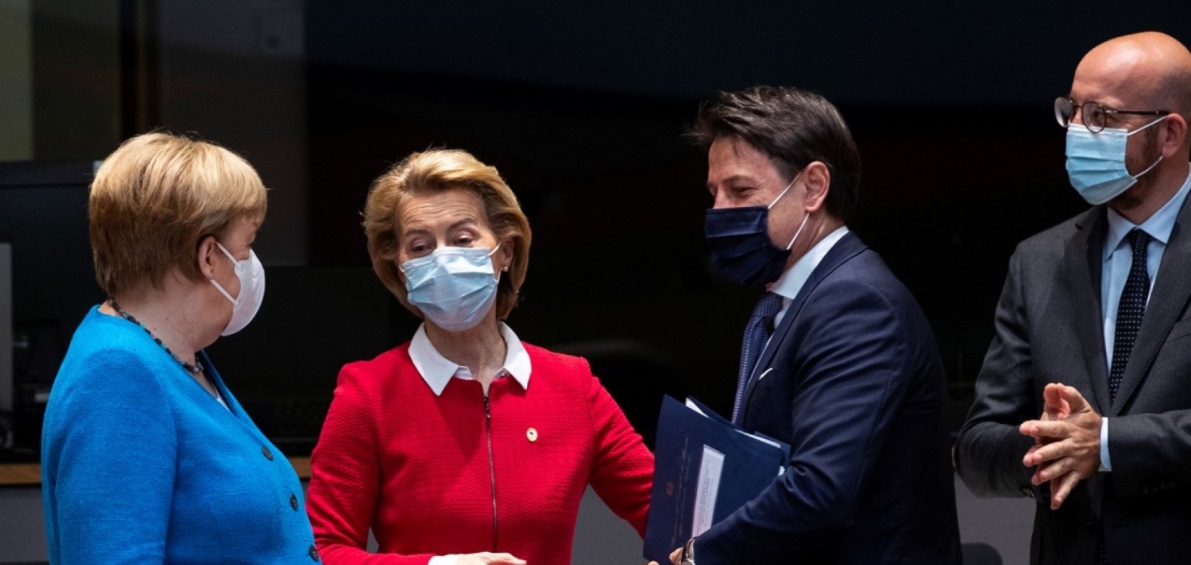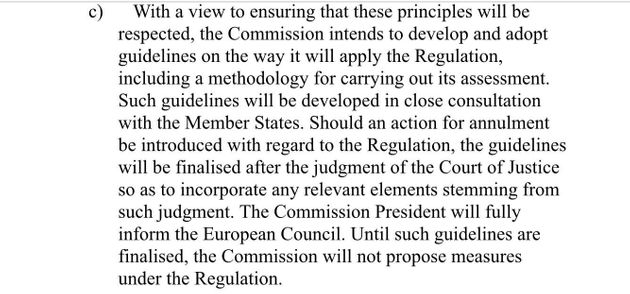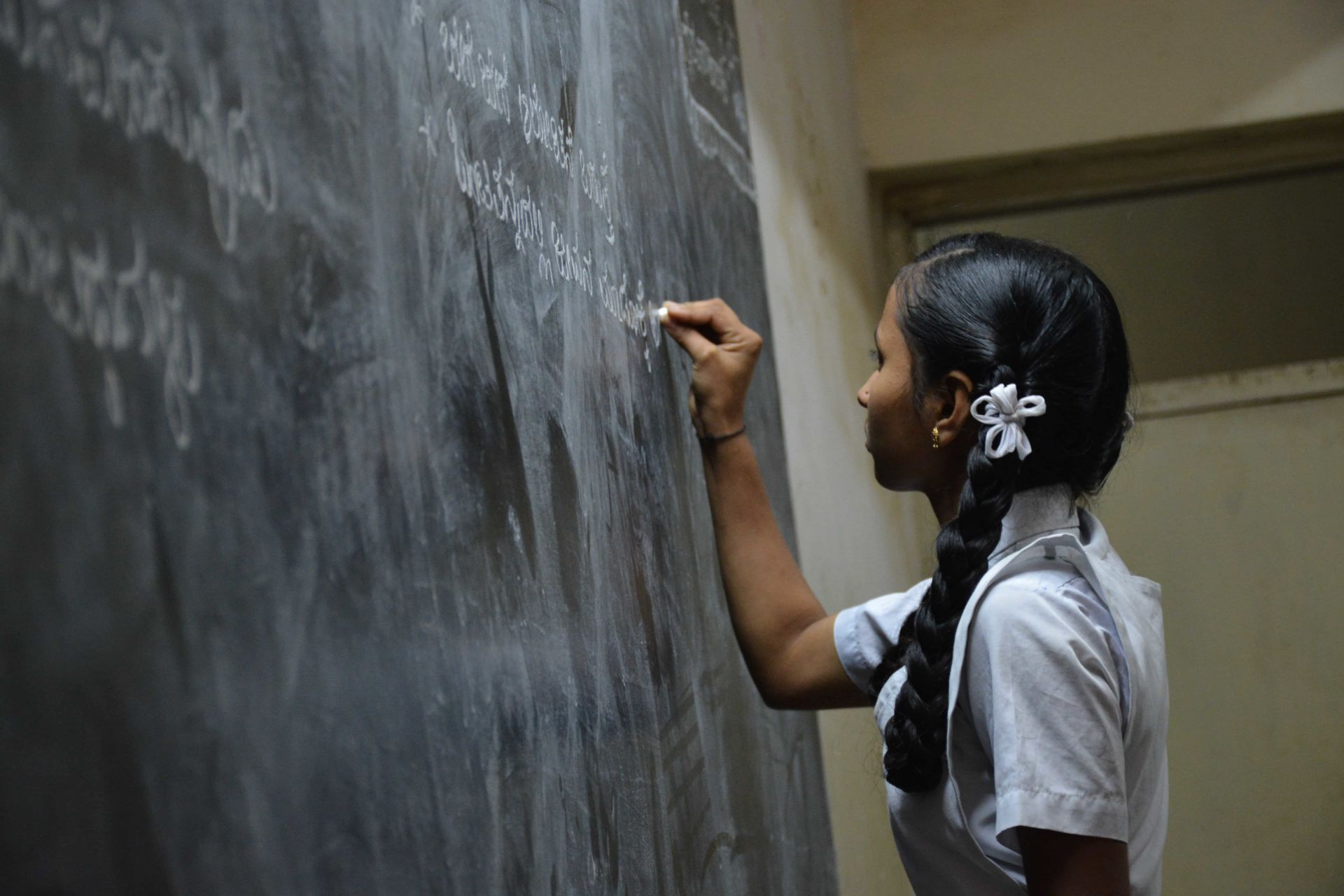Updated 11 December 2020: EU Budget effectively unblocked, Veto from Hungary and Poland is lifted, rule of law in the EU is compromised. The first to announce the news was the President of the EU Council, Charles Michel on Twitter:
Deal on the #MFF and Recovery Package #NGEU
Now we can start with the implementation and build back our economies.
Our landmark recovery package will drive forward our green & digital transitions. #EUCO
— Charles Michel (@eucopresident) December 10, 2020
It is time to consider whether countries like Hungary and Poland that flout the rule of law have any place in the European Union. And the European Council, all the European leaders starting with Merkel and Macron are sending out the wrong signal. Where did “European values” go? Disappeared in the Brexit fog? Indeed, why not have a Hungarexit and Polexit? And renegotiate their status in the Union with a new treaty similar to the one with Norway?
What follows here and was published yesterday explains what happened.
On 10 December 2020, the worst possible news came out about the EU budget and the Covid Recovery Fund: Angela Merkel has given in to Orban, the Hungarian autocratic leader and his populist friend, Morawiecki, the Polish Prime Minister. Hungary and Poland are now free to proceed on their way to autocracy, unimpeded, and with the help of lavish European funding.
As I recently reported, Hungary and Poland held up the process of EU budget adoption, objecting to a clause making access to these funds conditional on respect for the rule of law – a clause inserted by the European Parliament concerned by Hungary’s and Poland’s undemocratic measures. This meant that both the budget and the Covid Recovery Fund, €1.1 billion in total, the largest budget in European history, could not be disbursed – and might not be available before the summer.
This is shocking: All of us European taxpayers are financing this revolting slide of Eastern Europe into dictatorship. Actually, Orban is no longer sliding, he’s already arrived. And to think that he’s not even hiding it: He openly brags about his “illiberal democracy”, he controls the country’s justice system and has happily shut down Soros’ university in Budapest.
In short, in 2021, Orban and his Polish ally Morawiecki will be able to take in money from the EU Recovery Fund and will be able to continue to violate rights in their country without anyone being able to stop them. And above all without anyone being able to block the disbursement of European funds.
Angela Merkel is convinced this is a good result: “In recent days Germany – and I personally too”, she says, “have worked very hard to respond to the concerns of Hungary and Poland and at the same time to preserve the rule of law mechanism”.
Notice the wording: It’s not a matter of defending the rule of law, it’s merely a technical matter of preserving a “mechanism”.
Morawiecki is even more subtle. “We must avoid arbitrary decisions” in the rules of the rule of law,” he said before joining the Europa building for the summit with other EU leaders where the European Council is held. “For this reason – he continues – we are engaged in negotiations that clarify the dividing line between anti-fraud regulation, which we support, and the rule of law that is already clarified in the treaty. Mixing the two creates a dangerous situation that could lead to a politically motivated attack. Today we could be attacked, but in the future also others, Italy, Spain. To avoid this ambiguity we have presented these conclusions, a prerequisite for moving forward.”
Really? Are Spain and Italy about to embark on the road to dictatorship? Have they tried to curb their court system as Poland and Hungary have done? This is preposterous. That Italy and Spain might end in the same undemocratic corner as Poland and Hungary is unthinkable.
To unblock the EU Budget: How Germany “preserves” the rule of law “mechanism”
The Huffington Post Italy (and other journalists in Brussels) apparently got hold of the draft proposal that supposedly solves the problem. And it involves “suspending” the process for at least two months. Long enough to go ahead and disburse the promised Covid recovery funds to Hungary and Poland.
This is how the suspension of the rule of law works: the EU commission is tasked to develop “together with the Member States”, the “guidelines” of the rule of law regulation. A process that, according to EU sources, could take two months.
If an appeal were lodged in this period of time, “the guidelines would be defined only after the ruling of the European Court of Justice”. Commission President Ursula von der Leyen is responsible for “informing the European Council”, but “until these guidelines are defined, the Commission will not be able to propose measures relating to the rule of law regulation”.
That is: it will not be able to block funds. Here is the key paragraph:
It is not known yet whether Hungary and Poland will actually lodge an appeal to the Court (though it is likely). Regardless, the result is clear: The two will get their money. And they will not suffer any consequences for their autocratic decisions.
How about the Netherlands and the European Parliament who had been so adamant that “European values” should be respected? Nobody mentions anymore the proposal of going ahead with the adoption of the EU budget and the Recovery Fund without Hungary and Poland (i.e. Europe at 25, not 27).
Rutte, the Dutch Prime Minister who had been so vocal in the past, was more muted. When he arrived at the Council meeting, he just said, “I have three fundamental questions: I want to know what the EU Parliament thinks, and I hope we can find out this morning from the president, and I want to be absolutely sure that the compromise in no way limits the mechanism and its rules.”
The President of the European Parliament, David Sassoli, retreated from making any statement, saying that he cannot be “asked to comment on a draft”, adding “we want the rule of law regulation to come into force: if the recovery fund starts at 25 instead of 27 we are happy.” But then he made the point that “we are a moment in which decisions must be taken, they must not be postponed ”. And he tried to sound a note of optimism: “I found a lot of responsibility in the Council and even less tension than other times. I also say this with regard to objections made publicly by some prime ministers: it seemed to me that there is a willingness to launch the mechanisms we have negotiated together. “
Let’s hope so. We’ll find out tomorrow when the Council will communicate its decision. Knowing the diplomatic tricks European leaders love to deploy, it is unlikely that there will be many changes to this draft compromise. A compromise that is a disgrace and a scandal. It marks the end of democracy in Eastern Europe and it raises questions about how serious European leaders like Angela Merkel are regarding the preservation of so-called “European values”.
Editor’s Note: The opinions expressed here by Impakter.com columnists are their own, not those of Impakter.com. — In the Featured Photo: A moment in the drawn-out negotiations for the Covid Recovery Fund in summer (July 2020) Source: IPSI











